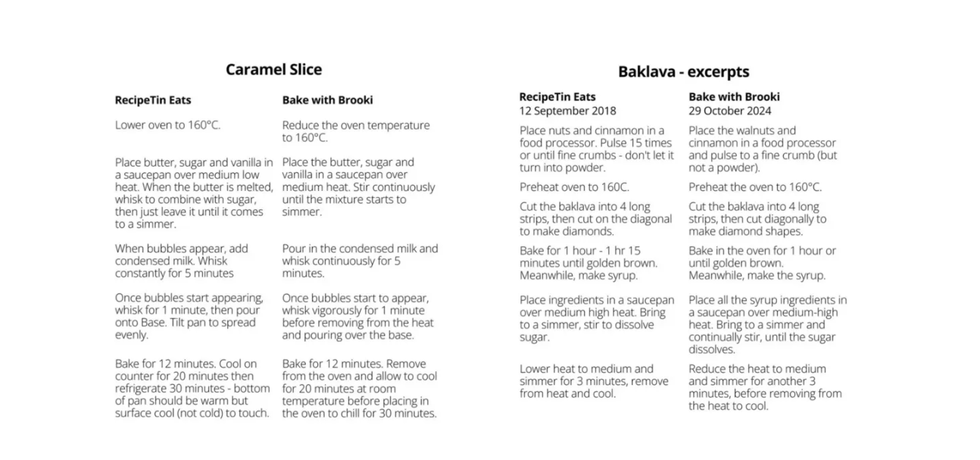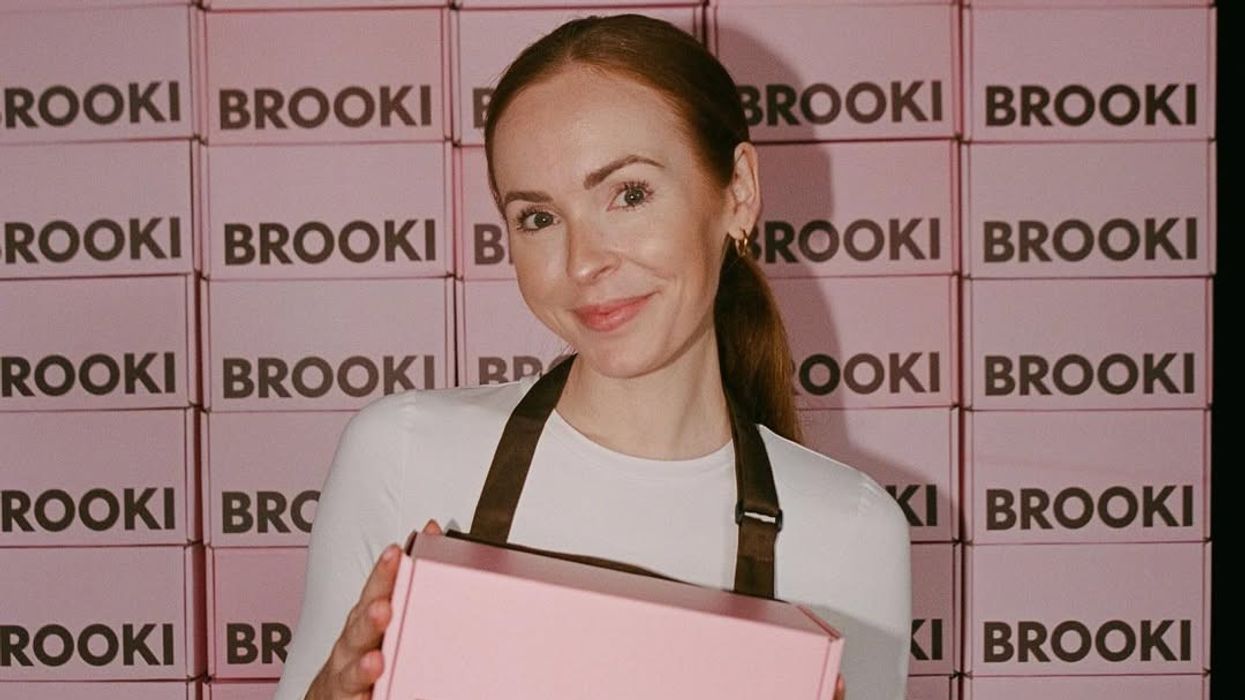Two well-known cookbook authors have accused Australian TikTok influencer and baker Brooke Bellamy of plagiarising their recipes in her bestselling cookbook Bake with Brooki.
Nagi Maehashi, founder of the popular food website RecipeTin Eats, alleged that Bellamy’s book contains "word-for-word similarities" with her own work. She highlighted that a reader first drew her attention to striking similarities between her caramel slice recipe and one featured in Bellamy’s book. On further review, Maehashi also identified similarities in a baklava recipe, presenting side-by-side comparisons.
Maehashi expressed her frustration, stating: “To see them plagiarised and used in a book for profit, without permission, and without credit, doesn’t just feel unfair. It feels like a blatant exploitation of my work.” She also confirmed that she had written to Bellamy and her publisher, Penguin Random House Australia, after discovering the resemblances. In response, Maehashi claimed that lawyers became involved and that she was subjected to what she described as legal intimidation.
Following Maehashi’s allegations, US cookbook author Sally McKenney, known for her blog Sally’s Baking Addiction, also came forward. She accused Bellamy of copying her vanilla cake recipe, which appears in both Bellamy’s book and her YouTube channel. McKenney said, “Original recipe creators who put in the work to develop and test recipes deserve credit—especially in a best-selling cookbook.”
Bellamy, who operates the Brooki Bakehouse with three locations across Queensland, has denied all allegations. She insisted that Bake with Brooki contains 100 recipes she has developed over many years and noted that some recipes pre-date the publications by Maehashi and McKenney. To support her claim, Bellamy shared an image of her caramel slice from 2016, which she says predates Maehashi’s version.
Despite maintaining that she has done nothing wrong, Bellamy has offered to remove the disputed recipes from future reprints of her book “to prevent further aggravation”. She added that this offer was communicated swiftly and that she has “great respect for Nagi”, but stands by the originality of her recipes.
Penguin Random House Australia also rejected the claims, stating that the recipes in Bake with Brooki were written by Bellamy. The publisher confirmed it had engaged legal representation in response to Maehashi’s accusations.

In a statement posted to Instagram, Bellamy said, “Recipe development in today’s world is enveloped in inspiration from other cooks, cookbook authors, food bloggers and content creators,” adding that the “willingness to share recipes” is one of the aspects she enjoys most about baking.
The allegations have sparked wider discussion around originality and attribution in recipe development. While recipes themselves are generally not protected by copyright, the exact wording and presentation can be subject to legal protection in some jurisdictions.
Both Bake with Brooki and Maehashi’s RecipeTin Eats cookbooks have been shortlisted for this year’s Australian Book Industry Awards. Bellamy’s book, published in October 2024, has sold over A$4.6 million worth of copies.
The ongoing dispute highlights growing tensions in the culinary world over content ownership, particularly in the age of social media, where recipes can be shared, adapted, and monetised rapidly. The outcome of this controversy could influence how publishers and content creators approach recipe attribution in future.





